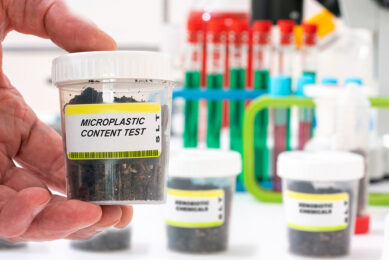Animal rights heating up in 2007
Despite intensified law-enforcement efforts and the passage of a new federal law in the US aimed at animal-rights extremists in 2006, the year ahead looks to be a busy one, with activists especially aiming at pharmaceutical companies.
Earlier this year the FBI, which considers animal activists one of the
biggest domestic terrorist threats, helped prosecute and essentially shut down a
group called Stop Huntingdon Animal Cruelty that was
focused on financially ruining Huntingdon Life Sciences, a firm that conducts
animal research for pharmaceutical companies.
In addition, President Bush
signed into law the industry-supported update to the Animal Enterprise Terrorism Act, which imposes fines
and imprisonment for activists targeting individual researchers and
businesses.
But both animal-rights activists and research supporters say
these actions will probably not be enough to stifle the diehard extremists in
2007.
“There’s going to be a lot of activity,” Frankie Trull, president
of Foundation for Biomedical Research, a pro-animal research group supported by
industry, told United Press International. Trull said she thinks activists will
target businesses conducting biomedical research as well as other secondary and
tertiary targets. “There are a lot of activities being carried out by activists
that, if added up, would have a significant effect on biomedical research,” she
said.
On the prosecution side, she said she anticipates law enforcement
will increase oversight, including using expanded powers of wiretapping, such as
monitoring Internet communications of activists, granted under the Patriot
Act.
Trull said another campaign that will likely increase is the focus
on contract research organizations (CROs), such as the one currently going on in
Chandler, Arizona, over Covance’s proposed animal-research facility.
The
activists’ activities could ultimately force pharmaceutical companies and others
engaged in biomedical research to relocate their US operations to other
countries, Trull said.
However, Jacquie Calnan, president of Americans
for Medical Progress, a pro-animal research group supported partly by the
pharmaceutical industry, told UPI she’s not aware of any evidence that is
occurring. “I don`t think you`re going to see any major pharmaceutical company
that has a presence here in the United States pack up to go overseas,” she
said.
Calnan said AETA may not deter extremists, but she hopes it sent a
message that they will be held accountable for their actions and that it may
make it harder for them to recruit new members.
However, it also might
intensify the actions of the extremists.











